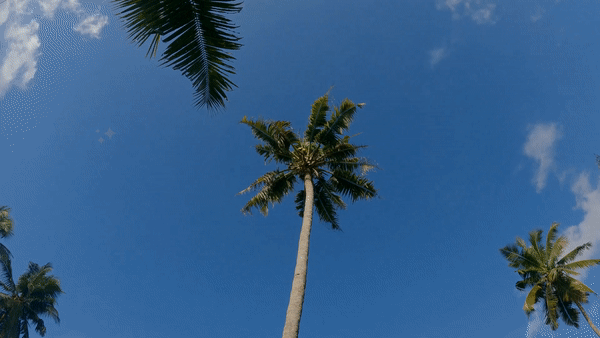Understanding the issues through Femi Anikulapo-Kuti’s Legacy+
By Eni-ibukun J.T
It is no news that Nigeria, presently, is in need of reforms – systemic and psychological as it undergoes a critical stage in its national security.
On the 15th of February 2021, Femi Anikulapo-Kuti released a body of work titled Legacy+, along with his son, Made.
His part of the project, individually, is titled Stop the Hate. It is a musical presentation in which he shares his thoughts on preceding and repetitive socio-political issues that have been in existence for over a long time, and are still recurrently affecting his country, Nigeria.
Through the project, He gives the verdict that an internal revolution through her citizens is what is needed, as soon as possible, to turn things around for the better of the country.
Femi Anikulapo-Kuti would know much about revolutions, and is in the right position to talk about issues concerning the Nation as he witnessed firsthand the revolutionary acts of his own father, Fela.
The singer and multi-instrumentalist expressed the urgency with which the people have to act. He asserted that we the people are running out of time to make things happen, simultaneously suggesting to government officials that they only have the options to either quit their leadership positions, or succumb to the will of the people eventually.
Without mincing words, Femi Kuti proclaimed the people’s needs that need to be met, and demanded the government to do the needful – which is to provide infrastructures that would aid our collective everyday individual standard of living. Eloquently, he summarised these infrastructures to be the provision and renovation of vehicle-worthy and pedestrian friendly roads, supply of consistent and useful electricity supply, and the building and rebuilding of operative and functional healthcare systems. He drove all these points home through the first song on the project which is titled Pa Pa Pa, a Yoruba expression of urgency.
.
Embed from Getty Images.
It is imperative to note that some of the dysfunctions we witness these days in form of insecurities are a function of the urgency with which certain individuals – citizens or immigrants – carry out illegal and detrimental acts in order to make ends meets and live beyond the standards within which this current governmental system has trapped them. This implies that we the citizens, regardless of our ethnic or tribal affiliations, are also in some ways culpable of some of the dysfunction the country faces.
On As We Struggle Everyday, the second track on the project, Femi Kuti attributes the people’s everyday suffering to be partly on our own conscience. He suggested that we have in some way been too tolerant of our leaders’ ostentatious lifestyles, and have encouraged their irresponsibility by sometimes heaping praises on them for their ill-gotten wealth, and even subconsciously admiring their unhealthily corrupt ways of living.
He draws a connection between the maintenance of such lifestyle and the suffering of everyday people. Invariably, the people need to come to understand that they themselves have the power to make their own lives better. If there is a common understanding of the causes of these sufferings, maybe there will be some sort of peace that comes with understanding these issues.
Issues like extravagant spending of public funds for personal wants will definitely lead to a major difference in class and income between leaders and citizens. This in turn leads to the introduction of policies that cannot favour the people because they are policies made basically to cover tracks and close loopholes of fund mismanagement, misappropriation, and generally speaking, ethical misconducts.
Also, the government, by the power vested upon it, exploits the media to create issues that could spark tribal tension knowing fully well that the nation which they rule over is made up of fragments of over 500 ethnic groups.
Conflict between people of different languages, class, and cultural orientation is a major way to deflect attention from the most serious national issues. In turn, when violence is publicised in a way that provokes one tribe against people of another tribe, citizens of these different tribal affiliations have the tendency to turn against one other, and dog begins to eat dog, which currently is the case.
‘Most people just want to live in peace. (Our) one problem is government and bad policies. They make life difficult instead of bringing simplicity. The hate and suffering around, so painful to see’ Femi Kuti sang in explanation on Stop the Hate, his thematic song of the project.
The desperate clamour for the national wealth by political office holders, especially by going through any lengths to attain political positions during elections is evidence to the people that the Nation has enough wealth to tap from for the betterment of their standard of living. This Show of Shame, as Femi describes it, also demeans the seriousness with which Nigerians are taken in other countries.
He cites instances where government officials have in the past blamed snakes, tortoise and other mysterious beings for swallowing national funds, and describes such instances as utterly disgraceful.
It is also painful to see that these corrupt practices have come to be a norm in the Nigerian society, even amongst citizens. This lack of moral integrity and uprightness in everyday dealings amongst and between citizens is a major ugly imprint on the country’s national image. Femi warns that anyone who eats, sits, laughs and jokes with corruption cannot in any way fight corruption.
There are levels to corruption, but the height of it is when people are being killed and maimed for monetary gains by the same people who are supposed to protect them and defend their interests. It mightn’t be known to all, but there is a continuous perpetration of Land Grab in the Nation of Nigeria. Apparently, foreign corporations are beginning to set base within the country in order to carry out industrial and economic activities. This actually is not the issue.
The problem is that the Nigerian government sells public infrastructure to private companies in order not to be responsible for the funding and operations of the said infrastructure. Also, land has to be sold to these corporations so they can mine for resources.
In order to sell these lands/communities, indigenous owners of the land are being maimed and killed, especially in cases where they revolt against the government’s motives. Femi Kuti cried out that all of these methods of keeping the country afloat economically are not needed for industry to thrive. If leaders will just be wise and considerate of their citizens, he suggested, we just might reach our massive economic potentials as a Nation.
He describes the concept as ‘the new cunny way’ on the track titled Privatisation. Privatisation is a signal that Nigeria could be going into another level of covert imperialism. It is consequently important now that citizens put aside the façade of their differences in order to demand some level of accountability from the current government. However, He apologises against just criticising the government for the sake of criticism, but to do this for the right and cogent reasons.
.
Embed from Getty Images.
‘We do not criticise government because we want government to fail. We criticise government because we want government to stop and change their ways. Many join politics for selfish reason and personal gain. That’s why to the people they bring so much suffering, hunger and pain…’ he sang in a tone that signalled a strain of pain in his voice on the track titled Na Bigmanism Spoil Government.
On this song, Femi Kuti called for a mass awakening and a radical political education through all available of means communication and enlightenment in this current age. He opined that the people have to understand that they empower the government.
They need to learn that they are no different from the people in the ruling class as they are made of the same constituents of flesh and blood too. A perceived sense of classism, in the name of “bigmanism”, as he put it, is one of the ways that government officials have made citizens feel inferior to them in order to not be questioned. That, and an uncontrolled use of sheer force; a phenomenon that seems to be a common tactic across countries in modern day Africa.
This, in the case of Nigeria, can be observed through the result of the latest attempt of its citizens to let their grievances known through the ENDSARS protest – an event whereby peaceful protesters were really met with brutal force that inflicted suffering, pain, and death upon them for protesting against these same ill treatments by militant mercenaries of the state.
The aftermath of the protest led to several cunny comments, gestures and acts by the government to demean the purpose for which it was held. However, Femi Kuti encourages young adults to not be discouraged by the intentional deafness of political leaders.
He expressed hope that they would keep their faith strong by continuously and consistently propagating the essence of their beliefs – a fair and transparent government that listens to its people. He believes in the emergence of a better society through young people because apparently, unlike his own generation, young people of today still have time on their side and an unfair advantage – the use of technology. Evidently though, through age comes wisdom, and he shared some with those of this generation who are still keeping the flag burning.
‘You have to be wise’, he counselled on Young Boy/ Young Girl. ‘Seek wisdom, seek good advice. Enemies will disguise, on your weaknesses they will capitalise. They will try to surprise, so you have to be wise’.
To wrap up his part of the project up, Femi Kuti encouraged every citizen to seek true spirituality. He suggested that this can only be achieved when one sets her/his mind and soul free. He emphasised that true freedom can only be achieved when one breaks away completely from the evils of corruption, the fanatics of religion, the slavery of colonization, and the suffering of drug abuse.
Basically, this implies that collective freedom can only be achieved when every individual is first free. An individual’s freedom of thought begins when one claims ownership of her/his mind. To claim ownership of the mind, one must question ideas of religion so as not to be a fanatic; ideas of personal principles so as not be a hypocrite; and ideas of history, in its various perspectives, so as not to be ruled by the imprints of colonialism.






